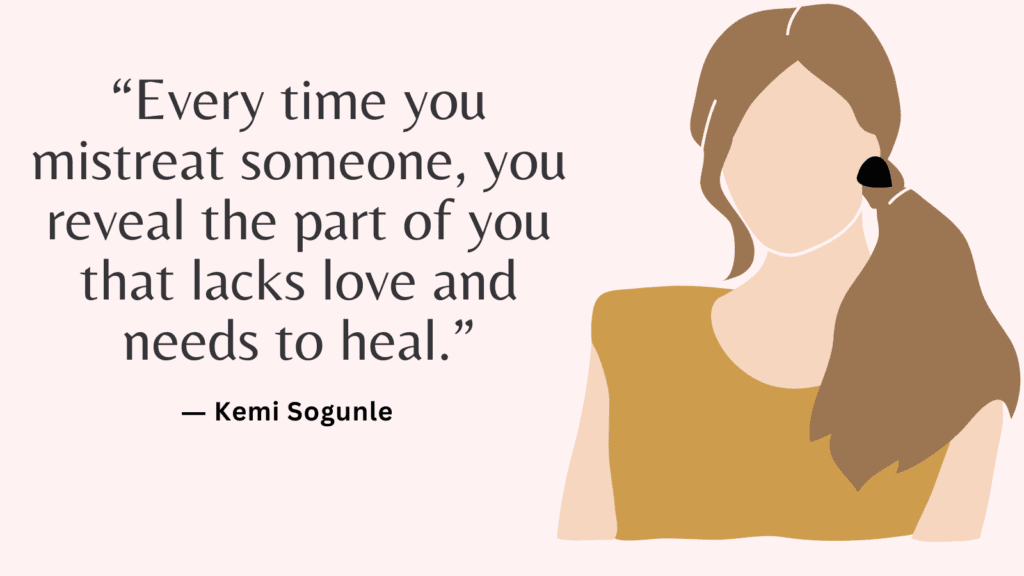In this post, you’re going to learn the difference between boundaries and ultimatum.
Boundaries vs Ultimatum
In short, boundaries define personal limits and promote mutual respect.
Ultimatums, on the other hand, involve demands or threats and can damage trust.
Establishing boundaries is an essential aspect of maintaining healthy relationships.
It helps define expectations, protect individual well-being, and promote mutual respect.
However, there may be instances where individuals feel compelled to issue ultimatums as a means of enforcing boundaries.
1. Understanding boundaries
Boundaries are guidelines that individuals set to define their personal limits, values, and needs within relationships.
They serve as a framework for respectful interactions, ensuring that both parties understand and honor one another’s autonomy.
Boundaries can encompass various aspects, such as physical space, time, emotional support, and communication styles.
They promote healthy communication, compromise, and an overall sense of security within relationships.
2. The purpose of boundaries
Boundaries play a fundamental role in establishing healthy dynamics.
They provide a clear understanding of each person’s responsibilities, expectations, and emotional well-being.
By expressing and respecting boundaries, individuals can maintain a healthy balance between their personal needs and the needs of the relationship.
Boundaries also foster self-awareness and self-care, promoting emotional resilience and preventing codependency or enabling behaviors.
Related: Top 25 Tips On How To Set Boundaries Without Being Controlling? (+FREE Worksheets PDF)
3. Setting boundaries effectively
When setting boundaries, it is important to approach it from a place of assertiveness, not aggression.
Communication should be open, honest, and non-confrontational.
Clearly express your needs, emotions, and limits, ensuring that they align with your values and personal well-being.
Boundaries should be flexible, allowing room for growth and adaptation within the relationship.
In addition, it is essential to actively listen to your partner’s boundaries and work together to find common ground.
4. Understanding ultimatums
While boundaries focus on self-care and personal limits, ultimatums tend to involve demands or threats.
An ultimatum is an assertion of power used to manipulate or control the behavior of the other person.
It often implies a “do this or else” approach, which can lead to resentment and damage the foundation of trust within the relationship.
Ultimatums are, therefore, generally considered unhealthy and counterproductive in fostering positive connections.
Related: Healthy Boundaries Quiz (+Free Pdf Worksheets)
5. The limitations of ultimatums
Issuing ultimatums can create a hostile environment within relationships, leading to power struggles, emotional distance, and potential relationship breakdown.
They undermine trust and make it difficult to establish open and honest communication.
Ultimatums also place excessive pressure on the other person, leaving no room for collaboration, compromise, or growth.
Ultimately, they impede the development of sustainable and supportive relationships.
6. Choosing boundaries over ultimatums
Rather than resorting to ultimatums, individuals should focus on setting and reinforcing healthy boundaries.
Boundaries allow for an open and ongoing dialogue, facilitating mutual understanding and respect.
They encourage constructive problem-solving and negotiation, leading to healthier compromises and relationship growth.
By prioritizing boundaries, individuals contribute to a nurturing and balanced dynamic, where both parties can express themselves freely while maintaining individuality and respect for one another.
Related: What Do Boundaries Sound Like? + 35 Boundaries Examples

Conclusion
In cultivating healthy and fulfilling relationships, it is crucial to differentiate between boundaries and ultimatums.
While boundaries promote personal well-being, mutual respect, and open communication, ultimatums create power imbalances and undermine trust.
By choosing healthy boundary-setting techniques and prioritizing respectful communication, individuals can foster positive relationships built on trust, compromise, and mutual growth.



